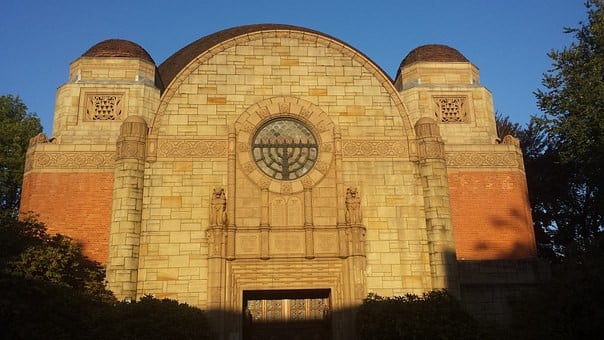
A reflection on and response to American cultural values, Jewish place in American culture, and the present culture of intolerance

By Dr. Ilise Levy Feitshans, JD, ScM and DIR, Founding President Haddonfield Jewish Center
Special to The Sun
One day when I was 4 or 5 years old, my father took a baseball out of my hands, saying that I should give it to my younger brother and step aside to watch without getting hit by the ball because “baseball is not for girls.” That one sentence changed my life forever.
My father and my grandfather loved me dearly from before my first breath until their last breaths decades later, so it was not an act of bad intention or conspiratorial meanness, and certainly not hate. If anything, this intentional separation between me, baseball and boy sports was designed as a proud moment so that my little brother could take his place among men and boys in the backyard who played baseball not very well, but with great pleasure in their spare time.
My grandfather was there, proudly cheering my younger brother who likely has no recollection of this interchange whatsoever, and might even, if asked, deny that it ever happened.
The reason this pronouncement changed my life forever was not the fault of my family. Our culture at the time saw baseball as “America’s Pastime,” a national cultural institution so endemic to American culture that it was successfully defended even against antitrust law. When baseball team owners were brought before the U.S. Supreme Court, a special exemption was created just for baseball itself.
A full generation later, I enrolled my beautiful daughter at the age of 8 or 9 in the special baseball camp at a major university in New York City where we lived, side-by-side with her learning-disabled brother. She was great at sports but he had only a confused slow response to teammate signals, yet the coach kept my son on the team and returned the money I had paid for tuition for my daughter. The coach sadly explained that he would love to have her on the team but baseball was not a girl’s sport. So despite my best efforts, it was the culture set in place when I was a little child that controlled my knowledge of baseball.
That moment of cultural permission to commit a permanent unjust act returned in a flash when I read the news of the tragic intrusion into a synagogue during worship with the express mission of killing Jews, that resulted in the death of 11 people. The killer did not stop to ask why they were in the synagogue or if they were Jewish. He killed with no self-restraint or shame.
What we fear most, is the reality that there is no cultural response to counter any desire to express such hatred. We fear there is, in fact, some cultural sanction that supports such acts without any shame.
The tragedy in Pittsburgh on Oct. 27, therefore, is not merely the body count of destroyed lives. The tragedy is that we are rendered speechless by this deep cut into the American Jewish cultural matrix when it is indeed a time to fill these passionate wounds with creative new approaches to confronting hatred and dissolving hurtful cultural values that persist like so many weeds in daily life.
It is easy to turn away and say it never happened to us, or to say it was someone’s personal fault. And then to tell people they must be nice and avoid hate. Worse still, that approach clearly doesn’t work.
We need a new approach. We need a careful and thoughtful discussion about the epidemiology of hatred. Where does such hatred as anti-Semitism come from and why on earth does it still grow, even after decades of Jewish assimilation into the highest reaches of American culture?
The answer may be simple, but it takes courage to ask simple questions and patience to offer the answers that are sometimes clear and sometimes elusive. There may appear to be no time to sit down one-to-one and listen to the voices which spout hatred, while hearing their basic concerns and figuring out the proper language for answering them.
But like a girl who was forbidden to play baseball and the boys allowed on the team, most Jews and non-Jews know very little about the experiences that form each other’s opinions and values. Nothing in my society challenged that fundamental misstatement rooted in prejudice, which became real even if biologically untrue — girls can’t play baseball.
Eleanor Roosevelt wrote, “human rights begin in the small places such as neighborhoods and homes.” For this reason, Cantor Scott Borsky and I have started the Haddonfield Jewish Center. We wish to open doors for people with questions and offer a listening post for people who have a desire to turn from hatred. I welcome any reasonable request to bring together Jews and non-Jews to discuss the root causes of such powerful destructive hate that seems to endure across generations.
There is no place that I know at this time where individuals can just come in and sit down and chat about what they see from the outside, and express intellectual curiosity about the unknown. I know this because I have witnessed many baseball games in person or on TV. I have traveled the world, learned languages, raised children and done many professional amazing things. But I have no idea what it is like to actually play baseball on a team.
So, too, many people simply can’t imagine what it is like to be a Jew, and our culture somehow supports hatred that fills that void. For many people in America, playing baseball is a far more likely experience than visiting and understanding Jewish home life and the richness of values we bring to American culture and society, but we must open our doors to reduce that void.
Please contact me at (917) 239–9960 or [email protected].









